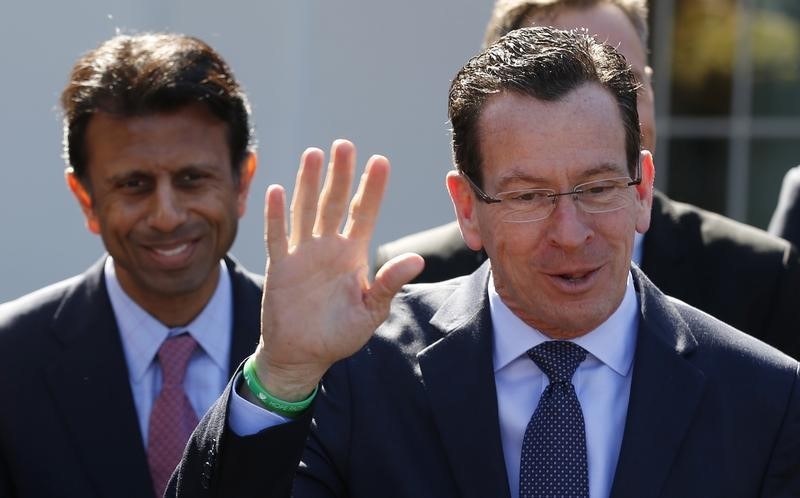By Edward Krudy
NEW YORK (Reuters) - Connecticut Governor Dannel Malloy delivered a downbeat address on Wednesday, outlining plans to slash government spending and admitting to "a visceral feeling" that there was no going back to the prosperity of pre-recession years.
The short and somber address came on the heels of a presentation by Malloy's top budget official, who called for $570 million of reductions next year on top of millions in cuts and tax hikes in previous years.
"Our national economy, while making progress from the Great Recession, was fundamentally changed," Malloy, a Democrat, said at his annual state of the state address. "A shifting workforce, the rapid rise of technology, and stagnant wage growth have made this recovery tougher for everyone, everywhere."
Connecticut has consistently lagged the national economic recovery and has been hit by job losses in its key financial and high-tech manufacturing industries.
The state has one of the worst funded pension systems in the nation. With required payments set to balloon to $6 billion by 2032, the system presents a significant risk to the budget.
"Connecticut is not going back to that pre-recession reality," Malloy told the Democrat-dominated legislature. "It just doesn't exist anymore."
Connecticut's woes show how U.S. states have shared unevenly in the recovery since the financial crisis of 2007-2009. Andrew Cuomo, governor of neighboring New York, felt confident enough to tout a $100 billion infrastructure plan in January.
"It's been a really hard recovery," said Douglas Offerman, an analyst at Fitch Ratings. "The old paradigm that you would exceed your past peak in every expansion doesn't appear to be holding right now."
Ben Barnes, Malloy's top budget official, said the replacement of higher-paying jobs with lower- and middle-wage positions had been a "major story" in Connecticut's budget ills.
Barnes proposed cuts of 5.75 percent to the budgets of state agencies, which could mean the elimination of several thousand jobs. He said cuts to discretionary spending would amount to 15 percent over two years.
At the start of the legislative session, Malloy urged lawmakers to pass an early budget and not wait until the last day of the fiscal year on June 30. But he said he would not circumvent the process.

The governor proposed overhauling the way the state runs its budget to bring the process more in line with revenue projections, shifting away from a "current services" model. He also said lawmakers should implement a spending cap.